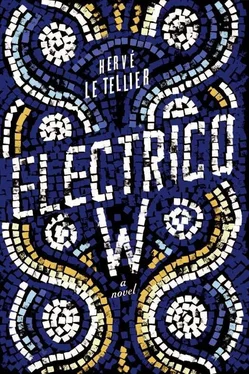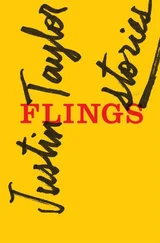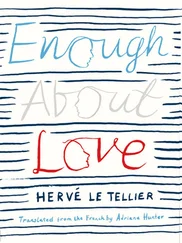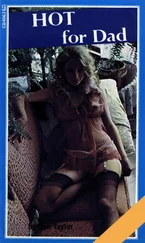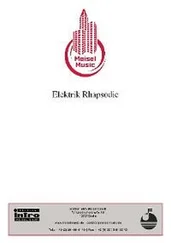She was describing shapes in the emerald water, ephemeral figures, no two the same, manipulating the bamboo precisely, unhesitatingly. It was as if she was forming letters, writing words long forgotten by the waters but carried to us silently on the shimmering wavelets.
Antonio was mesmerized. He set off along a paved path that ran through the water lilies and other water plants, crossing the lake that lay between us and the terrace. Something about the way he moved made me think he knew her, but he asked, “What’s your name?”
Antonio’s presumptuous familiarity, his intrusion, wasn’t paternal, it didn’t have the authority of an adult addressing an adolescent. It had more to do with an instant instinctive intimacy, the first words from a besotted prince to a shepherdess, or rather a fascinated shepherd to a princess.
“Aurora,” she replied, not looking up or even stopping her twirling of the bamboo in the lagoon.
All at once she threw the stick in the water and stared at Antonio and then at me, as I too crossed toward the terrace, clumsily, trying not to slip on the mossy paving stones. She jumped to her feet and when she looked me in the eye I realized she reminded me of Irene, because of her black, almond-shaped eyes, olive skin, and other indefinable qualities.
“Are you two lost? You realize this is my house, here, my island?”
Antonio smiled. “Your island?”
“Yes. It may not actually be completely an island but it is mine. I come here whenever I like, even when it’s closed. I have the keys to the little door at the end. That’s where my father keeps his machines. I always do my studying here. Textile drawings, but not printed patterns. I mean I do designs for woven fabrics. Do you know what I mean? Look.”
She opened her sketchbook at random. Every inch of paper was covered with sketches of geometric designs. One area looked like the cubist weave of cotton, another like pencil-drawn stitches in wool.
She stood on tiptoe and smelled the flowers on Antonio’s lapel.
“That’s pretty. Clivia minata . And where was it stolen?”
“Some kid just gave it to me,” Antonio apologized, embarrassed. “It’s a good luck charm …”
“Really? A good luck charm? Do you believe in good luck, then?”
She pirouetted on the spot.
“At night I sometimes light the little blue suns,” she said, pointing to ultraviolet lights on the roof arches.
“At night?” Antonio asked, smiling and running his hand through his red hair in a rather contrived, affected way.
The girl crouched, closed her sketchbook, and started clearing the pastels scattered over the paving stones into the violin case.
“Don’t you believe me? Are you laughing at me?”
“No, I didn’t mean to hurt you.”
She looked down, arranging her oil pastels in order like the colors of the rainbow. Antonio knelt beside her, picked up a few crayons, and handed them to her. Without looking up, she took them and said, “And do you two have names? You, what’s your name?”
“Antonio, Antonio Flores. And my friend is Vincent. Vincent Balmer.”
I introduced myself with a bow.
“Vincent Balmer? Are you English, then?” Aurora asked, but not waiting for a reply, she turned to Antonio: “And what about Flores? Is that really your name? Is that why you’ve come to see your cousins the flowers? That’s Jewish, isn’t it? They say all flower and tree names are Jewish. My name’s Jewish too, it’s Oliveira. And my middle name’s Judith. But I was baptized. Gods are so complicated.”
Of all the pastels she chose cyan and ran it along her forearm, tracing a streak of azure, like war paint.
“I’ll draw a bird for you Antonio, okay?”
She snatched Antonio’s wrist like a bird of prey launching itself at a mouse. In one fluid movement she drew a beak and a neck on his palm, created the line of a wing on his thumb, then another on his little finger, and, on his index finger, a long tail like a magpie’s, pointing upward. She put down the blue crayon, picked up a sunny yellow one, and, with a roll of her fingers, created the eye in the middle of his palm where his heart line and luck line crossed. She let go of Antonio’s hand and put away the pastels.
“Bird-hand, by Aurora Oliveira,” she laughed. “A good luck charm, and this one’s real. A bird in the hand is worth two in the bush, you know.”
Antonio moved his hand and the bird came fleetingly to life, spreading its wings, ready to fly. Antonio opened and closed his hand slowly, fascinated, unable to say a thing, and Aurora watched him closely, smiling. In the golden light, Antonio’s hair looked almost brown, and for the second time I thought him handsome, even more so. Then he turned to Aurora, and his whole voice had changed, husky but gentle too: “How old are you, Aurora?”
“Twelve.” Antonio opened his eyes wide and she burst out laughing: “No, I’m not, I’m thirty. What about you? Don’t say a thing, don’t tell me, whatever you do, you fool … Telling your age makes you older.”
A sudden bright light made me look up. Something was twinkling far overhead, way up in a huge rubber palm whose leaves hung over the top of the building, over the bay window. The twinkling came from a pair of round, steel-framed glasses. As it had grown, the plant had gradually engulfed the metal sidepieces, and the glasses were set right into the trunk. Two growths within the wood, two bulging green protuberances, formed a pair of froglike eyes. I instinctively pushed my own glasses back up my nose. Aurora noticed the gesture.
“Are you admiring Monstro?” she asked. “When I was little, even littler, it used to frighten me with its strange cut-out leaves, like witches’ masks. So I put an old pair of glasses between two of its branches. Then when it grew they were imprisoned. I called it Monstro because, according to the gardeners, it’s a monstera deliciosa . And it was the name of the whale in Pinocchio , you know, the film of Pinocchio …”
I couldn’t take my eyes off Monstro, off that pair of glasses trapped in the thick trunk where acrid white sap must have been seeping over them. That fragment of human life gave the towering plant a strange personality. Behind the filthy lenses, you could almost imagine there lurked a climbing-plant philosophy, with sententious words impounded in its chlorophyll.
Aurora was smiling mischievously. She must have been keeping a real, far deeper secret.
“Well,” said Antonio, “I think Monstro was one of your lovers and you were bored of him and turned him into a philodendron.”
Aurora touched Antonio’s cheek very lightly.
“You’re so clever, Antonio,” she said mockingly. “You guessed. I always turn my lovers into plants, do you think there would be this many here otherwise? Over there, that drooping fatsia, the one that needs water and is drying out because I won’t let anyone water it, that’s that idiot José. He was always hovering around me, constantly trying to look at my breasts, when he gave me an ice cream, when he read a book over my shoulder … One day, what a nightmare, he put his hand on my hip. Ugh, it was disgusting. And in a flash, changed him into a fatsia. Ciao, José.”
She ran over to a burgeoning plant clinging to a wall of rock.
“This staghorn fern here is Ruiz, he always wanted people to believe he was a real man. He rolled his pack of cigarettes in the sleeve of his T-shirt and made a lot of noise on his scooter. He’s much quieter like this, with these dangling fronds like dogs’ tongues.”
She gave a sneer to staghorn-Ruiz, walked on a few paces, and stroked a leaf on a palm tree near the water lilies.
“And this howea which won’t stop growing is Tadeus. He was the kindest one. He used to say, ‘Tell me, Aurora, do you think you’ll ever love me? Because, as you know, I just adore you and I want to live with you.’ He was so sweet, poor Tadeus … Then he got a bit too persistent and eventually even quite nasty. There’s no getting away from it, with boys, if they love you and you don’t love them they call you a bitch. That’s oversimplifying, isn’t it?”
Читать дальше
